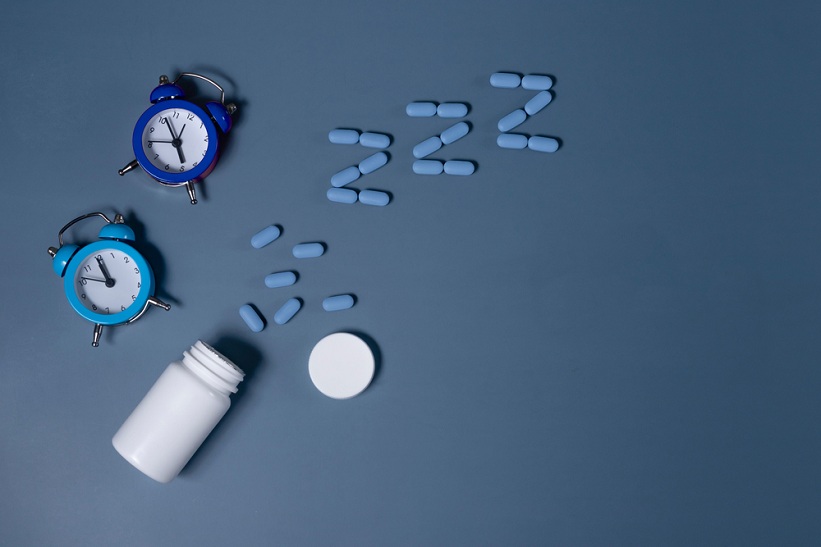It’s midnight and you haven't been able to catch any sleep yet because you have to catch your early morning flight. You might consider taking blue pills as the best solution. But, is it safe to take sleeping pills?
Like the deadly combination of alcohol and sleep medication, there are many dangerous facts about sleep medications that you need to know before starting a full course. With an unkempt lifestyle and fastly changing scenarios, we rarely think about what drugs do when they enter our bodies.
Back then, taking sleeping pills were used to induce immediate sleep; nowadays, they're used for promoting sleep.
Sleeping Pills Explained
Technically called sedative hypnosis drugs, sleeping pills are quite different from what most people think them to be. Many of us have taken sleeping pills today, whether they were for treating illness or for relaxation.
Did you realize that mixing sleeping pills with alcohol could be fatal?
A large number of people take sleeping pills every day. With approximately half of the American population having some form of sleep disorder, are these prescription medications even safe?
Sleeping pills are sedative drugs that inhibit the release of certain brain chemicals, which induce sleepiness and calm down anxious feelings and enhance sleep quality. These medications also contain addictive substances that distort the normal sleeping pattern and make the user tolerant of them.
From mild sedatives to strong anesthesia, these drugs can produce various types of experiences for different people. Some people actively inhibit their insomnia by supporting sleep; others can disrupt their biological clocks.
How Do Sleeping Pills Work?
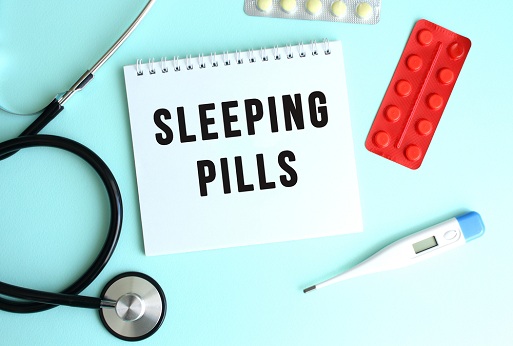
One of the main things that sleep medication accomplishes is to put someone to sleep, which is done by affecting their brain via the central nervous system. The pills relax the central nervous system, making it calmer and drowsier. They induce a slower-paced breathing rate.
The most popular sleep pill contains a naturally occurring chemical called Gamma-Aminobutyric Acid (GABA). Our brains contain numerous GABA receptors and these GABA supplements help to activate them and achieve drowsiness in the user. Sleep aids promote sleep rather than inducing sleep; they keep the sleep cycles intact.
Some sleeping pills don't contain GABA receptors. So, if you're taking any sleeping pills, make sure to talk to your doctor first.
Some of the sleeping pill prescriptions were originally intended as SOS treatments for allergies, and that’s why some pills aren’t always effective for people who suffer from chronic insomnia.
What Kind of Sleeping Pills to Take?
Sleeping pills come in different forms, but they're usually used to induce restful sleep. They may be helpful if you need to get some rest, but using them regularly could cause health issues.
Natural and herbal remedies for inducing restful and healthy sleep are the only natural remedies without any negative consequences.
Today, there are several ways to classify sleeping pills.
- OTC – Over-the-counter pills containing safe substances, mainly antihistamines called diphenhydramine. It causes drowsiness and has some minor unwanted effects too.
- Prescription – Prescribed from a doctor who specializes in sleep disorders or has experience treating them.
The use of OTC sleep aids may be helpful for treating short-term insomnia but they don't address long-term issues. If you suffer from chronic insomnia, it is best to consult a sleep specialist and figure out why you're having trouble sleeping.
When to Take Sleeping Pills
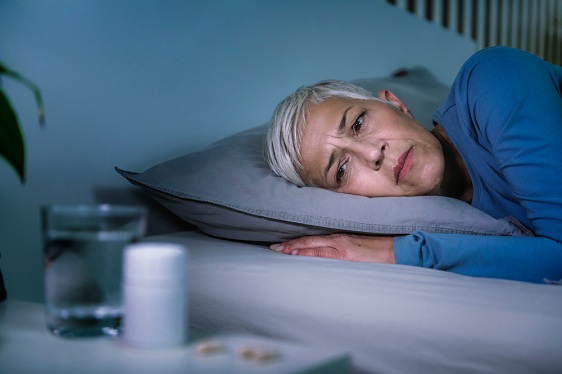
If you're going to take a sleeping pill, the best time to take them is when you've been up for a long time and are having trouble falling asleep. If you take a sleeping pill for a long time, you risk losing: your rest, health, and sanity too! No sleep aid should be taken for the long term. Therefore, the best times to take them are when you haven't had one recently.
Regardless of whether they're sleeping pills or not, all pills have side effects.
If you've been struggling to fall asleep lately, over-the-counter sleep aids may be the most effective option for you. If the sleep disorder is chronic, you need to see a sleep doctor and get complete medical checks.
When Not to Take Sleeping Pills
Sleeping pills aren't scary because of their hangovers. They're scary for another reason altogether. The pill causes severe sleepiness so no matter how habitually someone wakes up in the middle of their sleep cycle, they don't realize it. This causes sleep talking, sleepwalking, and similar other dangerous conditions.
You must also be aware of the following to ensure a healthy routine of consuming the pill.
Pregnancy
Do not take any type of sleep aid during pregnancy regardless of what the pill claims to be able to do for you. All the sleeping tablets are not of Grade A and hence they are not safe for pregnant women. If you're pregnant, you might want to check out things to know about sleeping during pregnancy.
Dosage
If you've taken the same pill every day for three consecutive days, then you shouldn't be taking it at all. Sleeping pills can cause alterations in your biological clock. It is therefore important to give yourself at least four days gap between doses.
Tolerance
Repeat exposure to chemicals causes a body to develop a tolerance for them. As time goes by, you will have to proportionally add more chemicals meant to induce sleep. This results in an increased level of toxicity and side effects too.
Rebound and Withdrawal
Addiction is the behavioral pattern resulting from taking pills. As a result, withdrawals include headaches, dizziness, vomiting, and confusion that last for several days after stopping taking the drug.
This not only worsens your sleeping pattern but also affects your mental health by triggering relapses and rebound cycles that worsen your sleeplessness.
Dos and Don’ts of Sleeping Pills
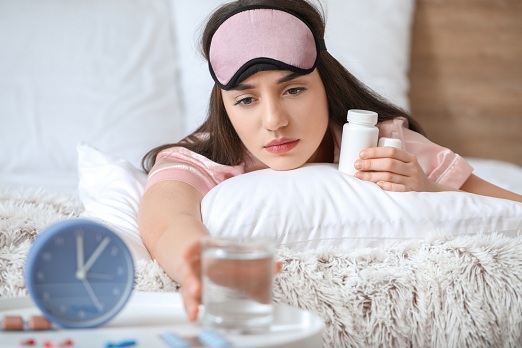
Sleeping pills are highly efficient drugs that cure sleeplessness as quickly as they bring disorder to your circadian rhythm. If you're taking the pills incorrectly, you could be putting yourself at risk for serious harm. Advances in technology have also led to some unapproved drugs that aren't recommended for everyone.
It's not recommended to start taking any kind of sleeping pill without understanding its full effects, both positive and negative.
Do Calculate Whether You’ve Enough Time to Fall Asleep with the Pill
With regards to taking medicine when you're asleep, there is a 4-8 hours window where the drug has entered the circulatory system. If you take the medicine too early or too late, there may be negative side effects.
Don’t Take Sleeping Pills Before any Big Day
Doctors advise taking sleep medications when your day tomorrow is a holiday. Many doctors recommend avoiding taking sleep aids before an important event because they'll often leave you feeling groggy for the rest of the day.
Do Take Pills Only When You’ve Insomnia
Most sleeping pills turn off the part of the brain responsible for alertness. Taking sleep aids if you don't suffer from insomnia or take them more than once every three days may cause a habit. It disturbs sleep cycles and causes a lack of sleep.
Don’t Stop Your Course Immediately
If you abruptly stop taking any type of pills for insomnia, you may experience some side effects. You may experience rebound effects after stopping sleep medication. These effects include 3-4 days of sleeplessness. You need to start decreasing your dosage gradually. Start by halving the dose for one week, then decrease by another half for two weeks, then decrease by a quarter, etc. until you reach zero.
Do Go to a Doctor if OTC Medicines are Not Working
About half the American populace is depressed about the ineffectiveness of OTC medications for treating insomnia, so the best way to get rid of insomnia is by consulting a sleep expert.
Women tend to suffer from insomnia more often than men and they're at greater risk for developing cardiovascular diseases. Unless you see a doctor, you won't ever be able to tell whether your insomnia is the result of an underlying condition.
Do Observe Your Side-Effects Religiously
It’s important to keep an eye out for any side effects from using sleeping pills. If you experience any unusual sensations during your dream time, wakefulness, or sleep, record them.
Don’t Take More Than Two Sleeping Pills Per Night
Another significant challenge that most busy people face is waking up mid‑sleeping during the first sleeping pill. They wake up only for another pill to stay confident that they’ll get a good night’s sleep.
Don't ever exceed two sleeping pills per night! If you take more than two, you might end up sleeping too long and piling up toxins in your system.
Furthermore, always begin with the lowest dose that is appropriate for one’s gender and body weight when starting a course of sleeping pills. You should speak to your doctor if you're taking any other medication too.
Side-Effects of Sleeping Pills
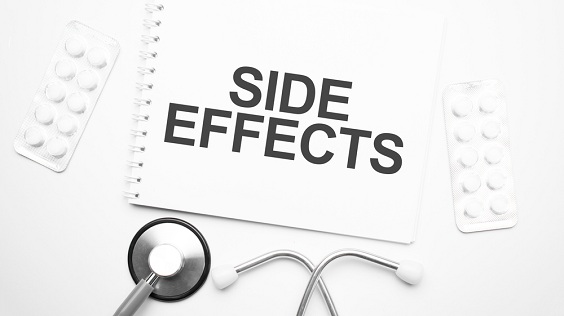
Sleeping Pills are just as safe as your regular routine of taking them. If you exploit the use of sleeping pills, the spectrum of side effects you may experience can vary from physical to emotional and mental.
Sleeping pills can cause various side effects including allergic reactions.
Falling Down
A sleeping pill named Zolpidem commonly causes drowsiness, which may lead to people feeling sleepy and tired. The drug makes patients four times more likely to fall because their nerves become weak.
We balance ourselves on two legs. If a drug causes your brain to become unstable, your legs will be unable to function properly and cause you to stumble.
Odd Behaviour
Things often go wrong in dreams or nightmares. However, if you're addicted to sleeping aids, then there is a constant stream of delusions that are caused due to your partially awake mind.
Benzodiazepines cause people to act erratically when they take them. They may experience sleepwalking and talk in their sleep.
Drowsy and Unsafe Driving
After taking an Ambien pill, people who've taken them have been found to stay awake for longer than usual. And consequently, some reports suggest that people who take more doses of Ambien may experience drowsiness when they drive.
Drowsiness lasts until the following day and makes one lose their senses to a considerable extent.
Depression
Insomnia is a cause of anxiety and stress, which leads to depressive symptoms. Therefore, we tend to think that sleeping tablets are the solution to these issues. It doesn't matter if they're proven to be effective since there are studies showing that zolpidem, zaleplon, and eszopiclone can actually cause anxiety instead of relieving it.
Many studies show that the neglected use of sleeping tablets affects patients' health to the height of suicidal tendencies.
Some of the other common symptoms of sleeping pills include nausea, dizziness, allergies, memory lapses, diarrhea, cancer, and death.
A Thing to Note
Hypnotic drugs like sleeping pills are not a healthy way to treat insomnia. However, if you suffer from severe sleep disorders, it is recommended to take sleeping pills to regulate a healthy sleep pattern.
When taking sleeping medications, remember to follow the schedule and routine without deviation. There are many serious health risks associated with taking too many sleeping pills, including death. You need to be careful when using them. The first thing you need to do if you want to keep yourself safe from taking sleeping tablets is to go to sleep for at least 7-8 hours straight.
Melatonin pills are safe for children who suffer from sleep disorders because they contain melatonin, which is a natural hormone produced by the body. Melatonin is a natural substance that induces sleepiness. Therefore, choosing the right type of sleep aid can make a big difference to your quality of sleep.
You can read more about melatonin here.
Insomnia is usually treatable with discipline, patience, and routine. Any stress that causes you to lose your natural circadian rhythms is a cause for concern. Find out why you're not sleeping well and then make some lifestyle adjustments to promote better sleep.

As a degreed engineer, I love new technology as much as you do (perhaps more). I also understand how to sort the best products from the rest. My team and I spend dozens of hours each week reviewing the best & latest products for your bedroom. Many are tested in-house, and others we break down based on our technical understanding. Whether you need a bed-cooling system, an adjustable bed, or a new CPAP machine – we've got you covered.

